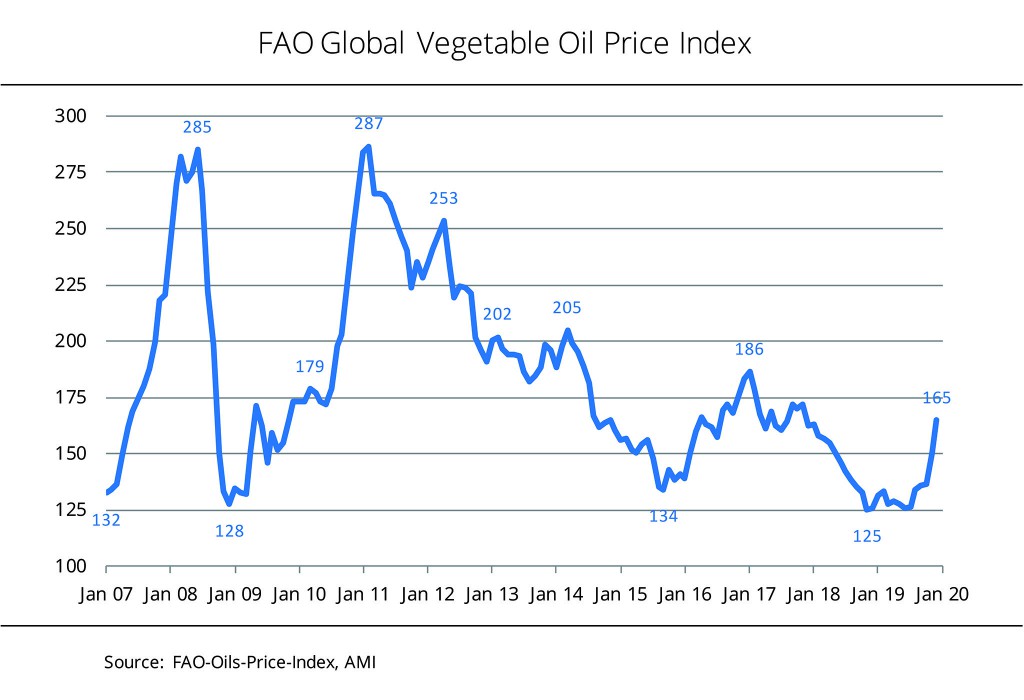Firm vegetable oil prices caused the vegetable oil price index of the Food and Agriculture Organization of the United Nations (FAO) to rise considerably at the end of 2019.
The FAO vegetable oil price index has increased steadily since June 2019. From 126 points at the time, it climbed just less than 40 points to 165 points by the end of the year. Between November and December alone, the index went up 9.4 per cent, or 14 points. This was the second largest rise in 2019. The surge was mainly driven by firm palm oil prices. However, asking prices for soybean, sunflower and rapeseed oil also picked up significantly. The reason for the sharp increase in palm oil prices was buoyant demand, especially from the biodiesel sector, combined with shrinking supply. Prices of soybean, sunflower and rapeseed oil benefited from smaller processing volumes at the end of 2019. Lower processing levels at the oil mills also led to a lower output of by-products, which took pressure off the market and supported prices. Moreover, world demand for soybean, sunflower, and rapeseed oil was brisk.
Concerns over global supply shortages lent additional support to prices. Regardless of the sharp rise in vegetable oil prices since November, the FAO vegetable oil price index for the 2019 calendar year averaged 135.2 points. This was down 8.9 points from 2018 and also the lowest annual average since 2006.
The development of rapeseed producer prices is mainly determined by the price level of the oil component. Despite the recent gratifying increase in producer prices to around EUR 390 per tonne, from the producers’ standpoint, prices continue to remain at an excessively high level, the Union zur Förderung von Oel- und Proteinpflanzen (UFOP) e.V. has commented.
According to the association, the international vegetable oil markets are mainly supported by government regulations in South America and, above all, Asia, to increase the incorporation rates of biodiesel. Rapeseed oil has also benefited from these regulations. UFOP has complained that, on the other hand, the biofuels policy of the European Union, more specifically the implementation of the Renewable Energy Directive, further restricts the use of locally produced feedstocks or biofuels instead of promoting biofuels that are greenhouse gas-efficient and certified as sustainable.
The association expects the EU to scrutinise this subsidies policy in the context of the Green Deal the EU Commission has announced. According to UFOP, other market support measures under a national or European bioeconomy strategy are not in sight. UGOP has urged that mere announcements are not enough and there is a need for creating marketing alternatives that have a positive impact on market and producer prices.
Source
Union zur Förderung von Oel- und Proteinpflanzen e.V. (UFOP), Chart of the Week, 2020-01-13.
Supplier
Food and Agriculture Organization of the United Nations (FAO)
Union zur Förderung von Oel- und Proteinpflanzen e.V. (UFOP)
Share
Renewable Carbon News – Daily Newsletter
Subscribe to our daily email newsletter – the world's leading newsletter on renewable materials and chemicals










